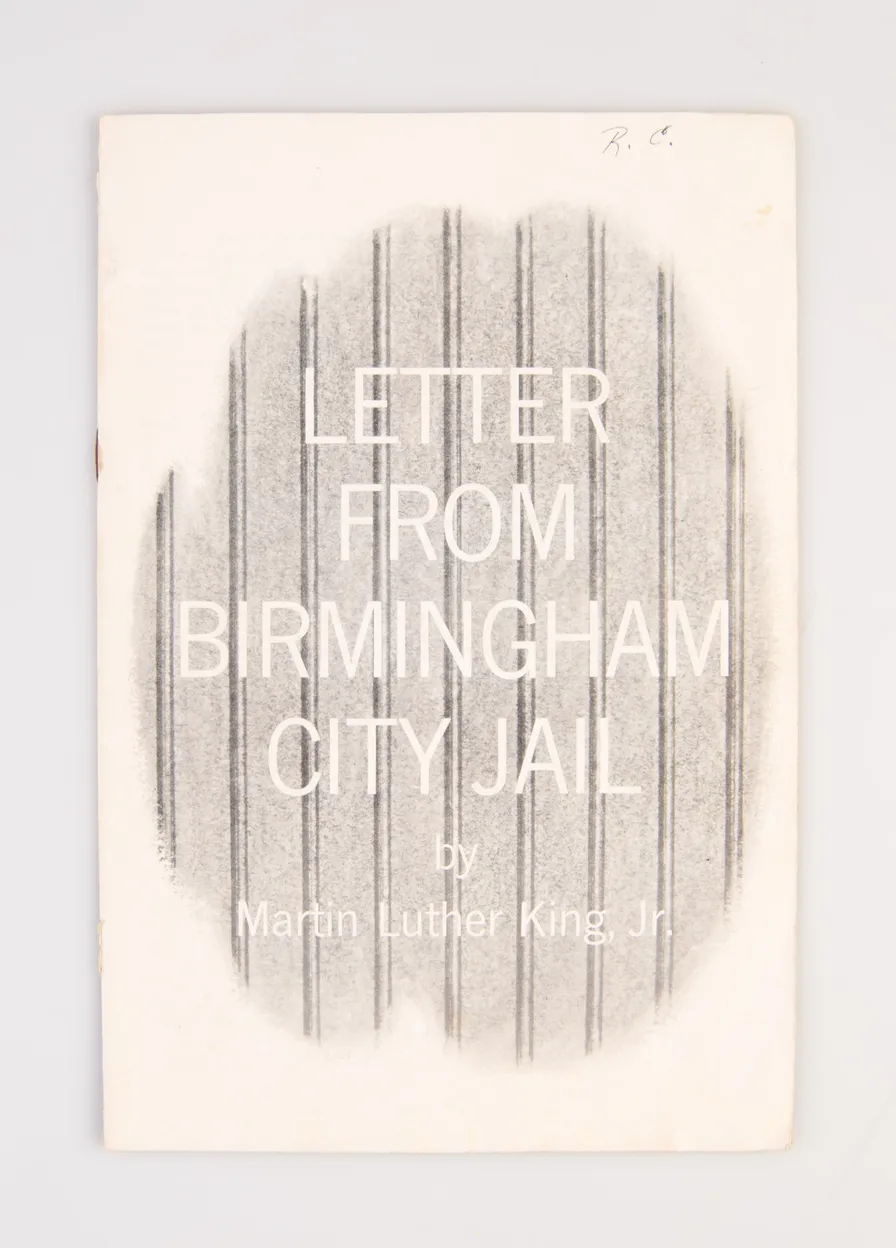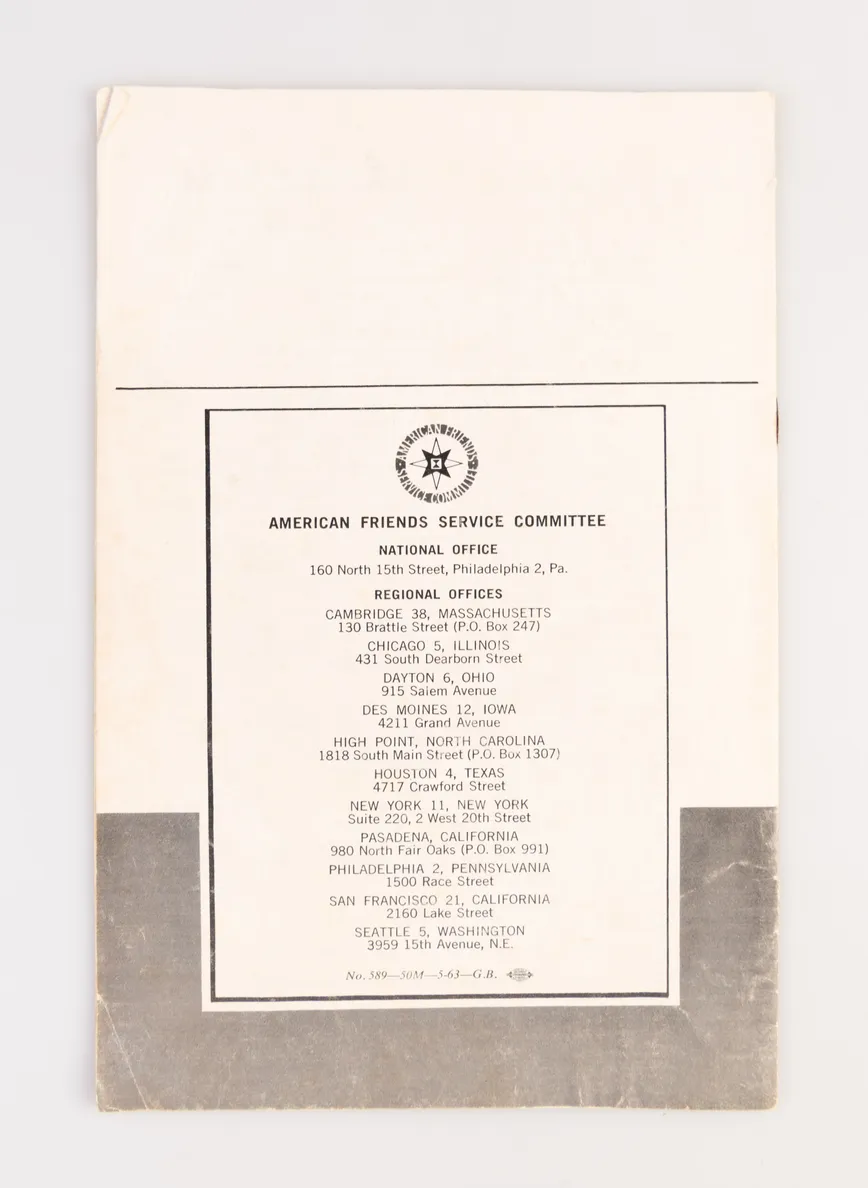This issue, dated May 1963, was the first separate printing of the letter.
The civil rights demonstrations in Birmingham in 1963 were the largest since the expansion of the southern protest movement began in 1960. "King’s decision to intentionally allow himself to be arrested for leading a demonstration on 12 April prodded the Kennedy administration to intervene in the escalating protests. A widely quoted letter that King wrote while jailed displayed his distinctive ability to influence public opinion by appropriating ideas from the Bible, the Constitution, and other canonical texts" (ANB). While the New York Times declined to print it, excerpts were run in several other newspapers. It is widely regarded as "one of the most widely admired texts in the corpus of twentieth-century U.S. civic rhetoric" (McClish). Indeed, “the ‘Letter’ transformed both King and the movement from a relatively regionalized action into a national and international cause" (Patton).
"Over the course of the letter's 7,000 words, King turned the criticism back upon both the nation's religious leaders and more moderate-minded White Americans, castigating them for sitting passively on the sidelines while King and others risked everything agitating for change. King drew inspiration for his words from a long line of religious and political philosophers, quoting everyone from St. Augustine and Socrates to Thomas Jefferson and then-Chief Justice of the United States Earl Warren, who had overseen the Supreme Court's landmark civil rights ruling in Brown v. Board of Education. For those, including the Birmingham religious leaders, who urged caution and remained convinced that time would solve the country's racial issues, King reminded them of Warren's own words on the need for desegregation, 'justice too long delayed is justice denied.' And for those who thought the Atlanta-based King had no right to interfere with issues in Alabama, King argued, in one of his most famous phrases, that he could not sit 'idly by in Atlanta' because 'injustice anywhere is a threat to justice everywhere'" (Maranzani).
Blockson, 3226; Maranzani, B., "Behind Martin Luther King's Searing 'Letter from Birmingham Jail'": https://www.history.com/news/kings-letter-from-birmingham-jail-50-years-later; McClish, G., "The Instrumental and Constitutive Rhetoric of Martin Luther King Jr. and Frederick Douglass" in Rhetorica: A Journal of the history of Rhetoric Vol. 33, No.1 (Winter, 2015), pp.34-70; Patton, J.H., “A Transforming Response: Martin Luther King Jr.’s ‘Letter from Birmingham Jail,’ in Rhetoric and Public Affairs Vol. 7, No.1 (2004), p. 54.


